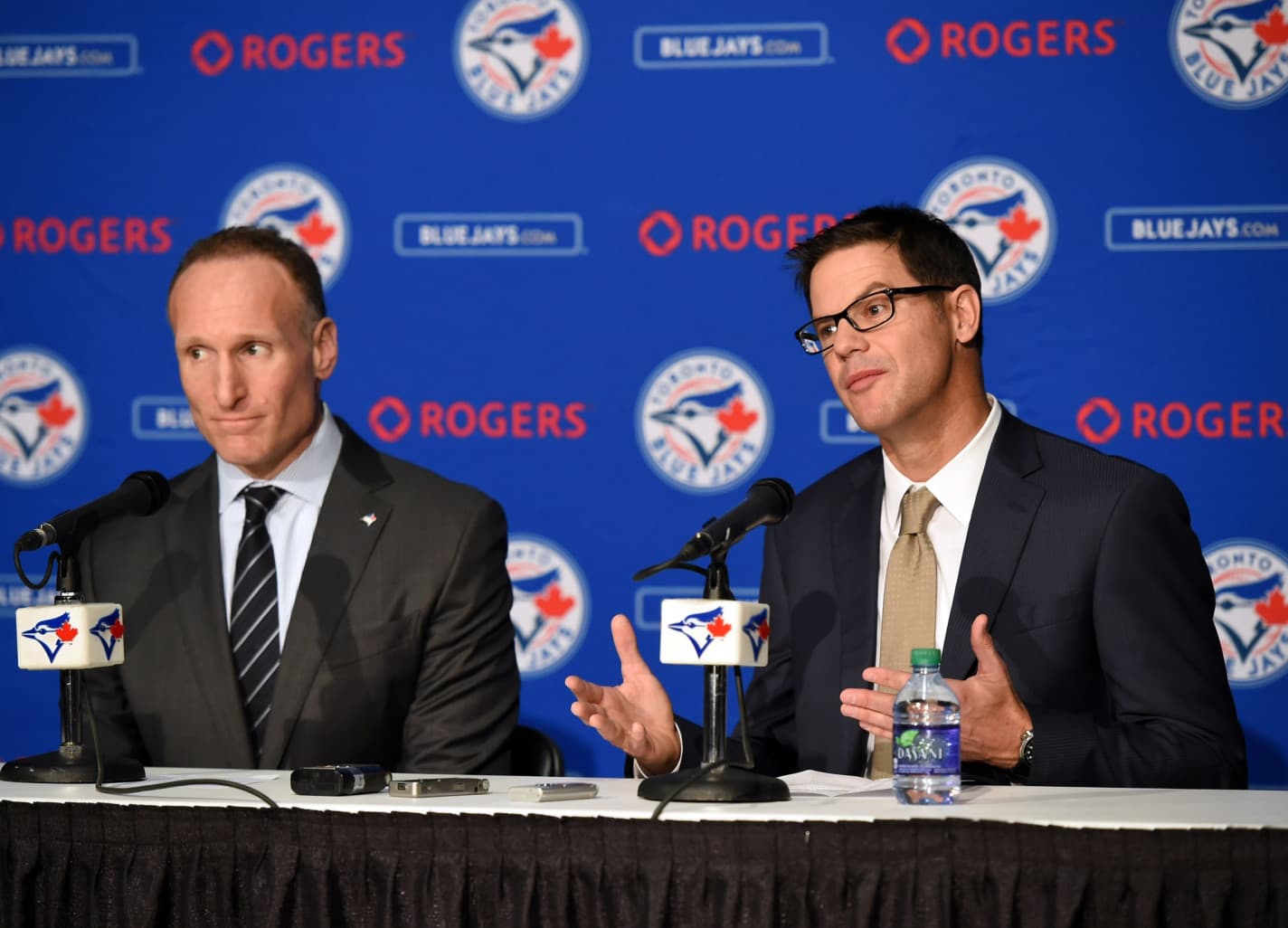Autonomy or Collaboration?: More On the Great (Insufferable) AA or Shapiro Debate

For Blue Jays fans (or, at the very least, people who read this website), relitigating the series of power plays that led to the departure of Alex Anthopoulos in the fall of 2015 probably feels a lot like relitigating the 2016 Democratic primaries probably does for American political junkies: an unceasing, inescapable, and thoroughly pointless nightmare that could have mostly been avoided had our beautiful world not descended into madness and evil almost immediately thereafter. Bernie would have won? Yeah, well Alex would have signed David Price!
OK, so maybe it hasn’t been quite that unbearable, but fans certainly don’t shy away from revisiting the way that 2015 offseason went down. And chatter on that topic has become especially noisy in the last week or so, as Anthopoulos has been announced as the new GM of the Atlanta Baseball Franchise.
Before he was fully immersed in the new job — and dealing with the disaster that commissioner Rob Manfred just laid at his feet because of his predecessor’s improprieties on the international amateur market — Anthopoulos did some media rounds, offering some words that weren’t too difficult to parse about why he left the Blue Jays, despite the club’s last ditch attempts to throw money at him to get him to stay. Ian quoted some of these over at the Blue Jay Hunter last week:
The one thing I always came back to is “who are you going to work with and who are you going to work for”.Certainly, talent, the city, all those other things are very important. But at the end of the day, you can have the greatest organization in the world, if you’re working for people you don’t enjoy, you don’t believe in them, they don’t believe in you, what environment is that going to be? How rewarding is that going to be?From what I had heard about [Braves chairman] Terry McGuirk, and then getting a chance to meet him and spend time with him and knowing he was going to be my direct report and would give me full autonomy on the baseball side, it was incredible to hear.
Ian offered his own thoughts on that passage:
There’s a lot to unpack there. The last part about having full autonomy sounded very important to Anthopoulos and that may have been a selling feature for him to become GM of the Braves. It also suggests Anthopoulos wouldn’t have full autonomy in Toronto after Mark Shapiro took over as team President in late August of 2015.
I’ve always believed that, while there seem to have been a number of factors involved, losing his baseball operations autonomy was primarily what drove Alex’s departure from the Jays — which was a shame, given that he’d built the best roster in baseball at that moment, and deserved to figure out for himself the down-the-road roster problems he’d created in so doing. Rogers, however, had hired a baseball ops person above him — and before that, had tried to hire another one in the form of Dan Duquette — something that the previous president of the club, Paul Beeston, very much was not.
And so, when these comments first emerged, I suggested that it was possible Alex wasn’t talking so much about Shapiro, but about the suits at 1 Mount Pleasant who created this situation in the first place. I was, however, very quickly told that the rumoured “scolding” that AA received from Shapiro — something Ian also mentions in his piece — was true, and that the tone was worse than reported. Perhaps, then, it was largely personal animosity between the two executives that caused Alex’s exit.
If that’s our conclusion, it’s probably not a great one for Shapiro. But this week we’ve been given reason to revisit this stuff yet again, and it goes back to that idea of autonomy.
Here’s Shapiro, speaking with our very own Ryan Di Francisco about it:
I’ve never understood and never felt that there is one person out there that is that much smarter, or that much better than a group of people, with a group of experiences, and collective intellect, and collective skill sets. If you were able to really create a culture where people feel safe and empowered, how much better can you be? That’s always been my thought.
And, speaking with Arden Zwelling and Ben Nicholson-Smith on Sportsnet’s At The Letters podcast this week, he’s Ross Atkins going even deeper into this aspect of the new regime’s culture:
Ultimately, if one person is making a decision all too often, or breaking ties, that’s not good enough. That’s fine, it’s just not good enough. It’s creating the best systems, and the best processes. Look those are big words that get thrown around a lot in business, and in professional sport now, but really it’s back to culture, right? If you have people who aren’t going to feel as though they have to be right, but are all motivated about getting it right, then you will have a good system, and you will have a good process, because everyone’s going to be contributing with their values, and understanding.. . .Here, with the Toronto Blue Jays, what I can tell you is, what I’ve seen from Tony La Cava, embracing Steve Sanders, and Steve Sanders coming in as a first year scouting director last year, and wholeheartedly wanting to have Tony every step of the way — as simple as that sounds, and as common-sensical as that sounds — it doesn’t usually happen that way. What people tend to revert to is, “You don’t think I’m good enough,” and “I can’t do this on my own.” And when you have people that are very smart, are very driven, are very talented, and still want all the help they can get, you’ve got a really incredible opportunity. And that’s happening across departments for us, with Ben Cherington and Gil Kim, and Angus Mugford and Clive Brewer, and Andrew Tinnish and Sandy Rosario, Joe Sheehan and Ryan Middleman, John Gibbons and Pete Walker. They’re not silos. They’re operating together and trying to help one another. We pick up the phone and are constantly working across departments, thinking about how we can help one another. It’s hard. It’s hard because it typically means you have to get out of your comfort zone, and it typically means you can’t just check a box and say, “I’ve got that done for today.” It typically means someone is saying, “Hey, we could do this a little bit better if we put a little more time into it, and we don’t do it the way that you think has always been right and worked.” That’s not typical, and it’s happening across our organization, and across our department, that is extremely inspiring, and is a great — I’m blown away with how much I’m learning from all the different individuals that are here.
More succinctly, he later put it this way: “If I were to think about, what is the one thing I’ve really learned — one or two things — it’s more confirmation that people, one person, is not good enough. Not Mark Shapiro, not Theo Epstein, not Ben Cherington, not one any individual.”
Now, I don’t think this stuff is insincere coming from Shapiro and Atkins. This isn’t the first way they’ve spoken this way, but this has certainly been the most emphatic they’ve been about it, as far as I can remember. Perhaps the “autonomy” talk from Anthopoulos struck a nerve and this all came out. Perhaps this is conscious messaging to try to make the case that their collaborative vision for the front office is better. Or perhaps it’s just genuine coincidence.
However it has come about, it gives us a little bit of an extra dimension through which to view the “autonomy” conversation that began with AA’s comments last week.
Now let’s please never talk about it again.
(Something we will talk about again, however, are the comments from Atkins on At The Letters, which were very much worth discussing beyond this old trifle, and will be explored more in a separate post.)
Recent articles from Andrew Stoeten





